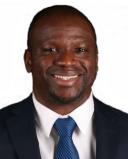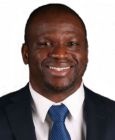Parenting
What Are You Going To Do When You Grow Up? (A Different Response To The Traditional Coming of Age Question).
What Are You Going To Do When You Grow Up?
Posted October 18, 2009
Most of us have heard that age old saying, "Jack of all trades, master of none." This saying has been used to encourage professionals to specialize solely in their field of specialty, and nothing else. This mind set has its merit, if a person focus all of her creative energy and mind on a specific task, the neurological connections in the brain, connected with this task are going to be so strong, that executing the specific task at hand will become second nature to that person. The question is, does being an expert in executing a specific task make you an expert in the field associated with the task? My response to that question would be no.
If you believe in the mindset that as human beings no single one of us knows all there is to know about anything, then focusing one's energies on a task, with the sole purpose of being an expert in the execution of that task, is the wrong way to go about being an expert. The danger with this mindset is that a person risks becoming so narrow minded that he ends of being stuck in the old way of doing things and subsequently achieves no growth. Instead, I would propose that in order to become an expert in the execution of any task, and be considered one of the best in a field of practice, a person has to be diverse with their knowledge and skills base.
So if you wondering what these first two paragraphs have to do with the the title, here's the connection:
Everything we learn and practice is connected. From mathematics, social studies, psychology, biology, chemistry, physics, e.t.c.. they are all connected. The connection between all fields of study and or practice are not vague nor minor, but can be best understood through the concept of a continuum.
As a therapist, it is not uncommon to see young clients who are coming of age, struggle with the age old question of what they are going to do with their lives. To further complicate issues, sometimes their parents help trigger more anxiety for the clients by pressuring them to make a decision, preferably a prestigious one. The truth is, as long as a person is engaged in an activity that involves critical thinking and practical application, he or she can transfer those skills into any task and field.
The best professionals in any field are aware of this open secret, that's why they usually have hobbies. Think of it as the equivalent of cross training for the mind. It keeps the brain sharper, more efficient and provides the person an opportunity to consistently connect the dots, and achieve more insight. The field of science and technology is filled with research breakthroughs by researchers looking for an answer in one field and accidentally coming up with a solution for another field, and researchers intentionally looking outside their fields of specialty for answers.
For adolescents struggling to make a decision as to what direction they want to take with their lives, the issue isn't about making a decision, but an ability to see the bigger picture, and a work ethic wouldn't hurt either.
So the next time you have an adolescent struggling to make a decision with what he wants to do with his life, tell him to start doing what's available. Better yet, encourage him to start engaging in community service, after all business is all about helping others, and a sure fire way to help anyone of any age achieve insight into what direction to take one's life.


